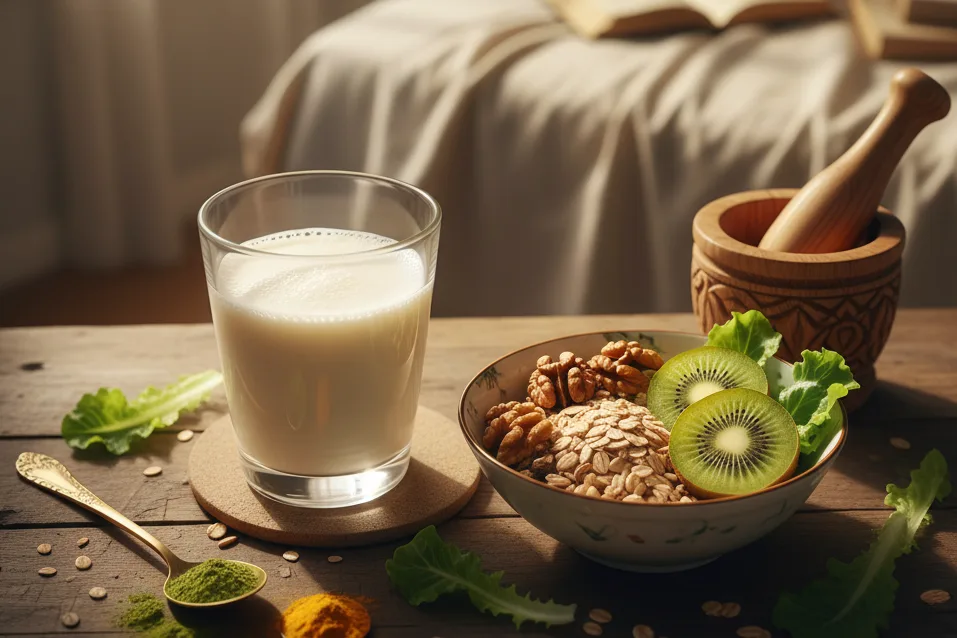Are you tossing and turning at night, searching for that elusive peaceful slumber? The answer might be closer than you think, nestled in your diet. An intriguing body of research, highlighted by recent findings, suggests that specific nutrients, particularly calcium and tryptophan, play a significant role in enhancing sleep quality.
Calcium: The Unsung Hero of Sleep
It might come as a surprise, but calcium isn't just for strong bones. This essential mineral is a critical player in the body's sleep-regulating mechanisms. How? Calcium actively assists the brain in the intricate process of converting tryptophan—an amino acid—into melatonin. Melatonin, often dubbed the "sleep hormone," is pivotal for regulating our circadian rhythm and signaling to the body that it's time to rest. Without adequate calcium, this conversion process can be less efficient, potentially impacting your ability to fall and stay asleep.
The Dynamic Duo: Tryptophan and Melatonin
Tryptophan is the precursor to serotonin, which in turn is converted into melatonin. While tryptophan is readily available in many protein-rich foods, its journey to becoming melatonin is facilitated by several co-factors, with calcium being a key ally. This biochemical pathway underscores why dietary choices can profoundly influence our sleep patterns.
Milk: A Natural Sleep Aid
For centuries, a warm glass of milk before bed has been a popular folk remedy for sleeplessness. Modern understanding now provides a scientific basis for this tradition. Milk is a natural powerhouse, containing both tryptophan and calcium in beneficial quantities. This makes it an ideal natural beverage to support the body's melatonin production, thereby promoting a more restful night. Animal studies have particularly highlighted the positive impact of milk consumption on sleep quality, especially when consumed at night.
Beyond Milk: Other Sleep-Enhancing Superfoods
While milk is a star, several other "superfoods" have been identified for their potential to improve sleep in humans. Incorporating these into your diet could be a delicious way to boost your sleep quality:
-
Barley Grass Powder: This emerging superfood stands out due to its exceptionally high levels of tryptophan, calcium, and potassium. These nutrients collectively make barley grass powder an ideal supplement for those looking to enhance their sleep naturally.
-
Whole Grains: Rich in complex carbohydrates and B vitamins, whole grains can help in the production of serotonin, a precursor to melatonin.
-
Turmeric: Known for its anti-inflammatory properties, turmeric may also support overall well-being, which indirectly benefits sleep.
-
Ginseng: Often used for its adaptogenic properties, ginseng can help the body cope with stress, a common impediment to good sleep.
-
Lettuce: Believe it or not, certain compounds in lettuce have mild sedative properties.
-
Kiwi: This small fruit is packed with antioxidants and serotonin, which can contribute to better sleep.
-
Walnuts: A good source of melatonin itself, as well as tryptophan and magnesium, walnuts are an excellent bedtime snack.
Cultivating Better Sleep Through Diet
The message is clear: what you eat can significantly influence how you sleep. By prioritizing foods rich in calcium and tryptophan, you're not just nourishing your body but also supporting the intricate biochemical processes that govern your sleep cycle. While lifestyle factors like regular exercise, a consistent sleep schedule, and a calming bedtime routine remain crucial, don't underestimate the power of your plate in unlocking the door to truly restorative sleep.
References:
-
Curr signal Transduct Ther;2014;9(3)148-55
-
J Sci Food Agric 2014;94(8);1688-92

